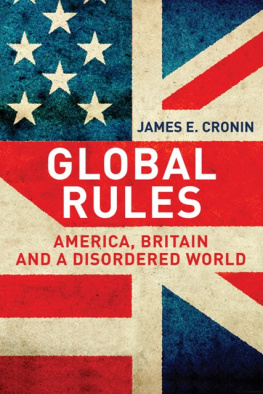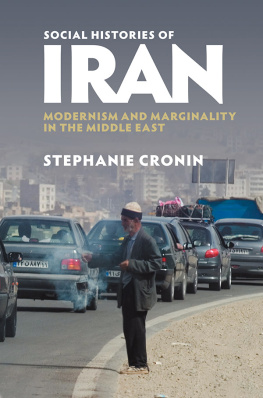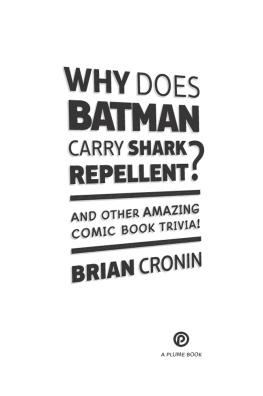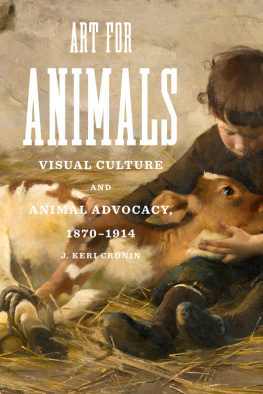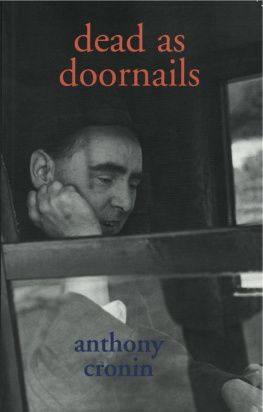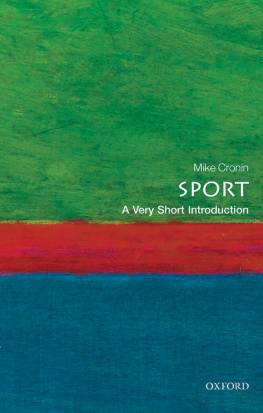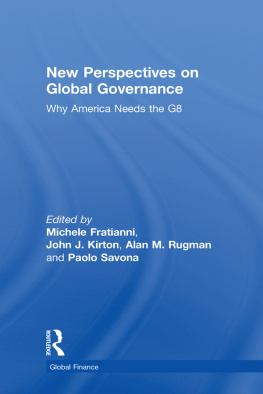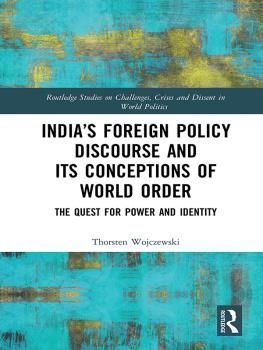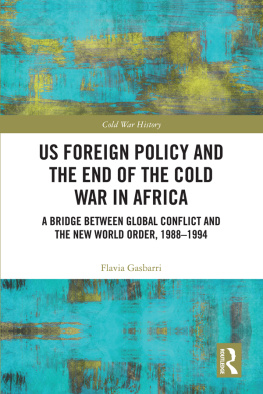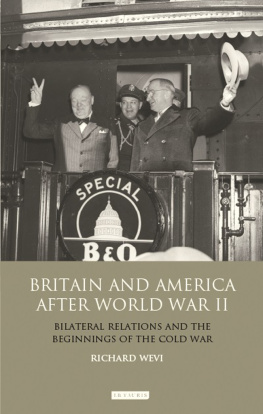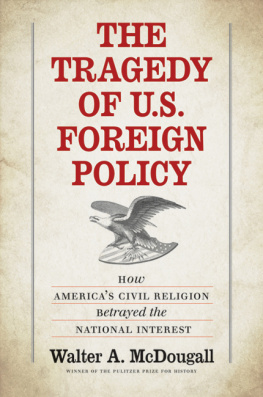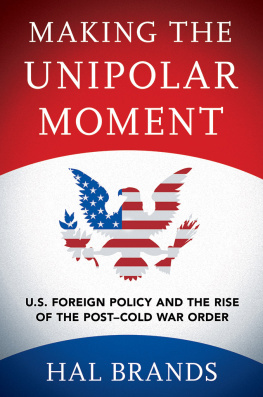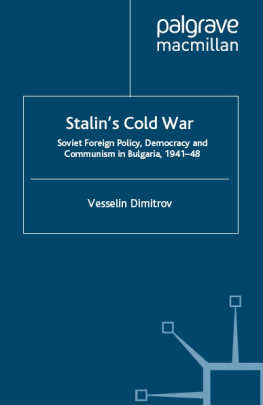

Copyright 2014 Yale University
All rights reserved. This book may not be reproduced in whole or in part, in any form (beyond that copying permitted by Sections 107 and 108 of the U.S. Copyright Law and except by reviewers for the public press) without written permission from the publishers.
For information about this and other Yale University Press publications, please contact:
U.S. Office:
Europe Office:
Typeset in Minion Pro by IDSUK (DataConnection) Ltd
Printed in Great Britain by TJ International Ltd, Padstow, Cornwall
Library of Congress Cataloging-in-Publication Data
Cronin, James E.
Global rules: America, Britain and a disordered world/James E. Cronin.
pages cm
Includes bibliographical references and index.
ISBN 978-0-300-15148-0 (cl: alk. paper)
1. World politics19451989. 2. World politics1989 3. United StatesForeign relations19451989. 4. Great BritainForeign relations1945 5. United StatesForeign relations1989 6. Cold War. 7. Security, International. I. Title.
D840.C76 2014
909.82dc23
2014014229
A catalogue record for this book is available from the British Library.
10 9 8 7 6 5 4 3 2 1
Contents
Prologue
The United States does not rule the world, either alone or in league with Great Britain. Nor do the two countries seek to do so. They have, however, largely made the rules that order the world and fashioned the institutions and alliances that govern the relations between states and economies and that define the character of states, confer legitimacy upon them, and specify the rights of their citizens. The United States and Britain played a critical role in structuring the world order that came into being after World War II; and it was a vision worked out in the U.S. and Britain during the 1980s that set the terms on which the Cold War ended and guided the making of the postCold War order. Together, these two efforts have shaped the world order that exists today. The goal of this study is to understand and explain this recent, and mostly successful, effort to establish the rules and norms of global order and to create, or recreate, the framework of institutions through which it functions.
The ending of the Cold War brought to a close an entire era and effectively resolved existential issues about democracy and dictatorship and about capitalism and socialism. It also opened enormous new possibilities for the design of political and economic systems, for the relations between states and for the international economy. It mattered greatly that as the Cold War loosened its grip on people and their fates those who prevailed in the struggle had at hand a model, if not quite a blueprint, for what the world after the Cold War should look like. At its core were commitments to free markets, to market--based democracies and to human rights. Backing up these principles was a newly assertive and rearmed United States that in the 1980s was determined to confront the Soviet Union and reduce its influence beyond its borders.
These ideas, and American military power, were not new, but they were all redefined, strengthened and more closely linked during the 1980s. This reconfiguration of policies was prompted by a pervasive sense of crisis and lack of control that grew over the course of the 1970s. The economy faltered, and prices soared with the oil shocks of 19734 and 19789. The United States experienced defeat in Vietnam and confronted a Soviet Union that had achieved a rough parity in nuclear weapons and was determined to push its interests in the Third World. Britain, America's closest ally in war and postwar, was forced by its straitened circumstances to reduce its global reach, granting independence to most of its empire and pulling back from positions staked out when its influence spanned the world. For a quarter--century its economy had grown more slowly than those of its European allies and competitors, and efforts to spur growth led to controversial policies that shattered the social compact and political consensus that had prevailed since the 1940s. By the 1970s, government seemed unable to steer the economy or to project power on even a modest scale. These parallel difficulties diminished the importance of the alliance between the two countries, for there was little that either could or would do for the other on the issues that mattered most. At the same time, the Western alliance became strained as the Soviet threat in Europe appeared to recede and divergent interests reemerged.
It required a crisis of this breadth and intensity to bring about a break from the pattern of governance and economic policy--making of postwar and the alliances and security policies in which they were anchored. The elections of Margaret Thatcher and Ronald Reagan were the most visible markers of the break. The two conservative leaders oversaw the sharp turn toward markets and against the state, as well as the ratcheting up of the rhetoric of the Cold War and of military spending. The attempt to reassert American and, to a lesser extent, British power in the world met resistance at home and abroad. The fact that it was now a postimperial, postcolonial and, in America, a post--Vietnam and post--Watergate world meant that policy needed to be reworked to take account of demands for peace, for human rights and for democracy. By the late 1980s, U.S. and U.K. strategy had therefore come to include not only the preference for open markets and hostility to communism but also the promotion of human rights and democracy.
This new formula was in place, in fact dominant, when the Cold War ended and opened up the possibility of applying it on a vast new scale. It was the vision that informed transitions in Eastern Europe and even, to some extent, in the former Soviet Union; and these prescriptions were to be enshrined in law and international agreements and in the norms they typically proclaimed. They were also embedded in international institutions such as the United Nations and the World Trade Organization, as well as the European Union, which were in theory committed to these principles and ready to enforce them. Alliances such as NATO and other security arrangements bargained out between the United States and local allies would provide the muscle that these other groupings often lacked. This postCold War order represented the extension of what can be labeled Atlantic Rules to the rest of the world. It was a major undertaking it could also be considered heroic, or arrogant, or utopian. The effort met with much success, frequent resistance, and numerous if not fatal setbacks in the 1990s and after.
This postCold War order was still in place a quarter--century after the collapse of socialism in 1989, though it was rather battered and compromised. The progress of democracy had visibly slowed after 2000, and after the debacle in Iraq the idea of humanitarian intervention or regime change to guarantee human rights lost whatever appeal it might have had. The economic model, based on free markets and the increasingly free flow of goods, services, money and even people, suffered a major blow with the great recession of 2008. Almost inevitably, the states and leaders who had not been in a position to establish the rules of the new order insisted that, as it evolved, they should have a major role in shaping its future. That insistence coincided with a new wariness on the part of voters and elites in the United States and Britain over their position in the world. The promise of openness had slowly morphed into a threat; and the prospect of leading the world came to be seen as an unwelcome and unaffordable burden.
Next page
